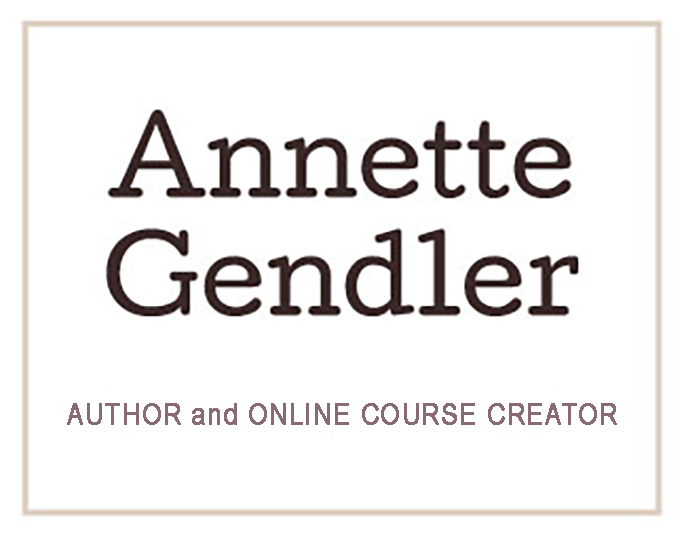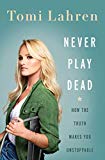
I am not usually one to buy books at an airport store. But on our recent trip to Washington, DC, where my husband and I dropped our youngest off at college and endured a rather disorganized parent orientation, we had some time before having to go through security before our return flight. So we browsed one of the remarkably well-stocked bookstores at Washington’s Reagan National Airport.
I ended up buying Tomi Lahren’s new book Never Play Dead. I am not a follower of hers but I did remember seeing her on some TV special and being impressed by her astuteness. So I leafed through the book and happened upon a page where she talked about her creative process. For example: One minute of TV equals one hour of work.
I thought, “Here’s someone who could be my daughter. Let’s see if I can actually learn something from her.”
After all, she achieved considerable TV success by age 26. It turns out, I did learn a lot from her. It wasn’t necessarily new stuff but it never hurts to hear good advice, tried and true, from a successful creative person.
I know a book is good when I end up reading it even though it wasn’t on my to-be-read list. (Food for thought: Maybe there is something wrong with that whole TBR list concept? Maybe spur-of-the-moment attraction supplies better reading experiences?)
Anyway, Tomi Lahren’s Never Play Dead kept me reading through the whole flight home, and on into the next day. It was an easy read but my pencil was busy. I ended up underlining many, many passages.
Whenever I get out a pencil several times to underline phrases, I know I am reading a good book, one I probably will share with many people.
So, I decided that, for today’s blog post, I will share what I underlined. Maybe it will spark some insights for you.
Great insights on authenticity:
“Don’t play to the hits. When you engage in a conversation about any topic, you become confident in what you think. And when you are crystal clear on what you think, you will be crystal clear on who you are, what you believe, and why.”
(p. 47)
“I am not worried about losing fans because I’ve disappointed them or because of my opinions. I’m worried about losing myself.”
(p. 48)
On why we need to believe in the concept of abundance, and why we don’t need to compare ourselves to others (my interpretation):
“Flowers can bloom next to flowers.”
(p. 57)
“Never make it about other people. The only way to succeed is with ideas.”
(p. 57)
It struck me how much this resembles the modus operandi of the late Lubavitcher Rabbi, who took great care never to attack others, especially other prominent rabbis, personally, no matter who much he disagreed with them on important issues (see Rabbi Joseph Telushkin’s excellent biography, Rebbe: The Life and Teachings of Menachem M. Schneerson, the Most Influential Rabbi in Modern History).
“I don’t want to be a shooting star, I want to be a sun.” (p. 58)
(p. 58)
The above might sound ambitious, but I find it speaks to what Julia Cameron always emphasizes about living the creative life: It is about sustained effort, not a one-time shot.
“The moment you start worrying about other people, that’s the moment when you stop focusing on yourself, and you start sliding.”
(p. 58)
That goes with the previous “Flowers can bloom next to flowers.” There are days when I would benefit from having this tacked to my mirror! In fact, I really found it impressive that Tomi Lahren has all these rules for herself that help her navigate the tumultuous waters of life in the public eye of TV and politics.
“What did I do today to get me closer to what I want to achieve? 24 hours are going by regardless of whether or not you seize them.”
(p. 92)
“You can do something to achieve your goals every day. Have foresight. Look way down the line, not just in front of your face. This will help you achieve those goals, and when you do, you will be able to set that price tag.”
(p. 161)
The above two quotes reminded me of Julia Cameron’s take on the perennial excuse of not taking up a creative pursuit:
“Do you know how old I’ll be by the time I learn how to play the piano?”
“The same age you will be if you don’t.”
Julia Cameron, The Artist’s Way, p. 138
You do need to know what your goals are, however. But other than that, Tomi Lahren’s take dovetails with Julia Cameron’s general premise:
You gotta advocate for yourself, help yourself:
“No one has ever accomplished anything by waiting for a handout.”
(p. 93)
“We have a finite amount of time on this earth, so if you’re going to do something, why be mediocre?”
(p. 102)
In general, I tend to agree with this, but I have been trying very hard lately to get out of my own perfectionism roundabout that can keep me from moving forward. So this is something to think about!
“We’ve grown to love things and use people when it should be the other way around.”
(p. 104)
I totally agree with this! It is infinitely easier to love things. After all, they don’t talk back! They don’t have their own needs. Well, maybe they do, like my broken fridge, which just had to die, but things are not alive, so of course they are easier to love. Which is also why loving people is infinitely more fulfilling: It is more difficult.
“It’s my gut instincts that have given me staying power. That’s true of all people with staying power.”
(p. 106)
Maybe that is precisely because it is so hard to trust your own gut when actually it shouldn’t be? Our gut is our only true guiding light, isn’t it? Especially if we are trying to do something new? Or say something no one else has said before?
“Confidence is when you’re not feeling your best, but you’re going to go out and be your best anyway.”
(p. 109)
In her book’s introduction, Tomi Lahren rightfully quotes the old saying, “Life begins when you live outside your comfort zone.”
I have found that to be true so many times when I embarked on something new and pushed myself to go forward despite the dread spreading in my stomach.
“Worry less about who you might offend and pay more attention who you might inspire.”
(p. 149)
In my opinion, this should be the title of Tomi Lahren’s book. I find this advice particularly inspiring because I used to be one of those people who made a list of who remembered my birthday and who didn’t, all the while getting way more upset, and investing way more emotional energy, in those who didn’t, rather than being grateful for those who did. Not that my birthday is that important anyway, but I think rounding that corner and
being grateful for what is, rather than what isn’t, is immensely empowering,
especially when it comes to putting out your work. It might also be a sign of maturity, finally!
“I don’t believe there is one woman who is successful who wakes up and says she is going to do or not do something because she’s a woman.
(p. 161)
I totally agree! I grew up close to my brother and I just never felt that there was a big difference between us in our experience as humans. Nor do I feel there is between my husband and me.
Lastly, I was impressed with Tomi Lahren’s evident but subtle faith and trust in God:
The moment you start to over analyze stuff, that’s an insult to God, because you’re telling him that he can’t handle your life.
I’m not saying you should sit back and be lazy and expect good things to happen for you. But when you have done everything you can, give it to God.
(p. 218)
Wow! My friend Rivka Levy pretty much operates on that principle. It was good for me to read Tomi Lahren’s assertion after dropping our youngest off at college. I kept going through the to-do list I had assembled during parent orientation, but as the plane took off, I exhaled and realize that it wasn’t my life to push forward anymore, it was my son’s.
So, thank you, Tomi Lahren, for your astute take on the creative life, and life in general. Life does get more complicated as we get older and accumulate more responsibilities, but all in all, this was an inspiring read from someone at the beginning of adulthood.


Good review!
Thanks!
Thanks for this post – just what I needed now going through a transitional time in life.
Glad you found it inspiring!
Inspirational words shared from two creative souls. Thank you!
Glad you enjoyed it!